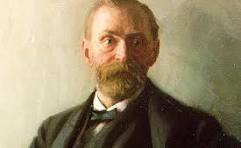A Life of Invention and Irony: Alfred Nobel’s life is a story of stunning transformation — from the inventor of dynamite and the so-called “Merchant of Death” to the visionary founder of the Nobel Prizes. Haunted by the misuse of his invention, Nobel turned remorse into redemption, leaving behind a legacy that celebrates peace, progress, and the power of human conscience.

Deepali D
Alfred Nobel, the Swedish chemist, engineer, and inventor, was born in 1833 in Stockholm. A visionary scientist and industrialist, Nobel held more than 350 patents, but one invention defined — and nearly destroyed — his reputation: dynamite. Created in 1867 to make mining and construction safer and more efficient, dynamite soon became a deadly tool of war. Further inventions followed: gelignite in 1875, a more potent blasting gelatin, and ballistite in 1887, a smokeless propellant. By his death, Nobel held 355 patents and owned over 90 factories worldwide, amassing a vast fortune from explosives and armaments.
The same invention that promised progress also unleashed unprecedented destruction, earning Nobel a grim nickname — the Merchant of Death.
The “Merchant of Death” Obituary: A Moment of Reckoning
In 1888, a French newspaper mistakenly published Alfred Nobel’s obituary after the death of his brother Ludvig. The headline read, “The Merchant of Death is Dead,” condemning him for profiting from human suffering. Reading his own obituary in horror, Nobel confronted a painful truth: the world would remember him not as an inventor or visionary, but as a man who made killing easier. That shocking moment of self-reflection became the turning point in his life.
From Guilt to Greatness: Creating the Nobel Prizes
Determined to redefine his legacy, Nobel resolved to devote his fortune to the cause of peace and human advancement. When he died in 1896, his will left 94% of his estate — about 31 million Swedish kronor — to establish a foundation to honor those who “have conferred the greatest benefit to humankind” in Physics, Chemistry, Medicine, Literature, and Peace. His decision stunned his family and contemporaries, but it transformed his name from one associated with death to one synonymous with hope and human excellence.
The Nobel Peace Prize: A Legacy of Redemption
The Nobel Peace Prize, first awarded in 1901, stands as a testament to Nobel’s transformation from the Merchant of Death to the Messiah of Peace. Over the decades, it has recognized global icons such as Martin Luther King Jr., Nelson Mandela, Mother Teresa, Malala Yousafzai, and the United Nations.
Through these laureates, Nobel’s vision continues to inspire efforts toward disarmament, human rights, and international cooperation. His act of repentance turned into a global movement — one that rewards peace over profit and compassion over conflict.
A Timeless Lesson in Redemption
Alfred Nobel’s journey teaches a profound moral truth: human beings are capable of change. His story is not merely about invention, but about introspection — the courage to confront one’s legacy and rewrite it for the greater good. Nobel proved that redemption is not only possible but powerful enough to reshape history.
From Merchant of Death to Messiah of Peace, Alfred Nobel’s legacy endures as a shining example of how conscience and compassion can triumph over guilt and greed — transforming one man’s remorse into humanity’s highest honor.



